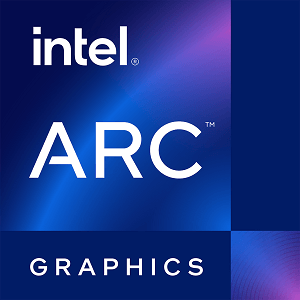UHD Graphics 64EU vs Arc Graphics 32EU
Abbiamo confrontato due GPU Scheda grafica integrata: 0System Shared VRAM UHD Graphics 64EU e 0System Shared VRAM Arc Graphics 32EU per vedere quale GPU ha migliori prestazioni nelle specifiche chiave, nei test benchmark, nel consumo energetico, ecc.
Differenze Chiave
UHD Graphics 64EU Vantaggi
256 core di rendering aggiuntivi
Potenza termica inferiore (45W vs 65W)
Arc Graphics 32EU Vantaggi
Rilasciato 2 anni e 9 mesi in ritardo
Boost Clock è aumentato del 39% (1950MHz vs 1400MHz)
Punteggio
Benchmark
FP32 (virgola mobile)
UHD Graphics 64EU
+43%
1434
Arc Graphics 32EU
998
Scheda grafica
gen 2022
Data di rilascio
ott 2024
HD Graphics-M
Generazione
HD Graphics
Integrated
Tipo
Integrated
Ring Bus
Interfaccia bus
Ring Bus
Velocità di clock
300 MHz
Clock base
300 MHz
1400 MHz
Boost Clock
1950 MHz
System Shared
Clock memoria
System Shared
Memoria
System Shared
Dimensione memoria
System Shared
System Shared
Tipo di memoria
System Shared
System Shared
Bus memoria
System Shared
System Dependent
Larghezza di banda
System Dependent
Configurazione del rendering
512
Unità di ombreggiatura
256
32
TMUs
16
16
ROPs
8
1024 KB
Cache L2
-
10 MB
Cache L3
-
Prestazioni teoriche
22.40 GPixel/s
Tasso di pixel
15.60 GPixel/s
44.80 GTexel/s
Tasso di texture
31.20 GTexel/s
2.867 TFLOPS
FP16 (metà)
1.997 TFLOPS
1434 GFLOPS
FP32 (float)
998.4 GFLOPS
358.4 GFLOPS
FP64 (doppio)
-
Design della scheda
45W
TDP
65W
No outputs
Uscite
Motherboard Dependent
Processore grafico
Alder Lake GT1
Nome GPU
Arrow Lake
Generation 12.2
Architettura
Xe2-LPG
Intel
Fonderia
TSMC
10 nm
Dimensione del processo
3 nm
Sconosciuto
Transistor
17.8 miliardo
Sconosciuto
Dimensione del dado
243 mm²
Funzionalità grafiche
12 (12_1)
DirectX
12 Ultimate (12_2)
4.6
OpenGL
4.6
3.0
OpenCL
3.0
1.3
Vulkan
1.3
6.4
Modello Shader
6.8


